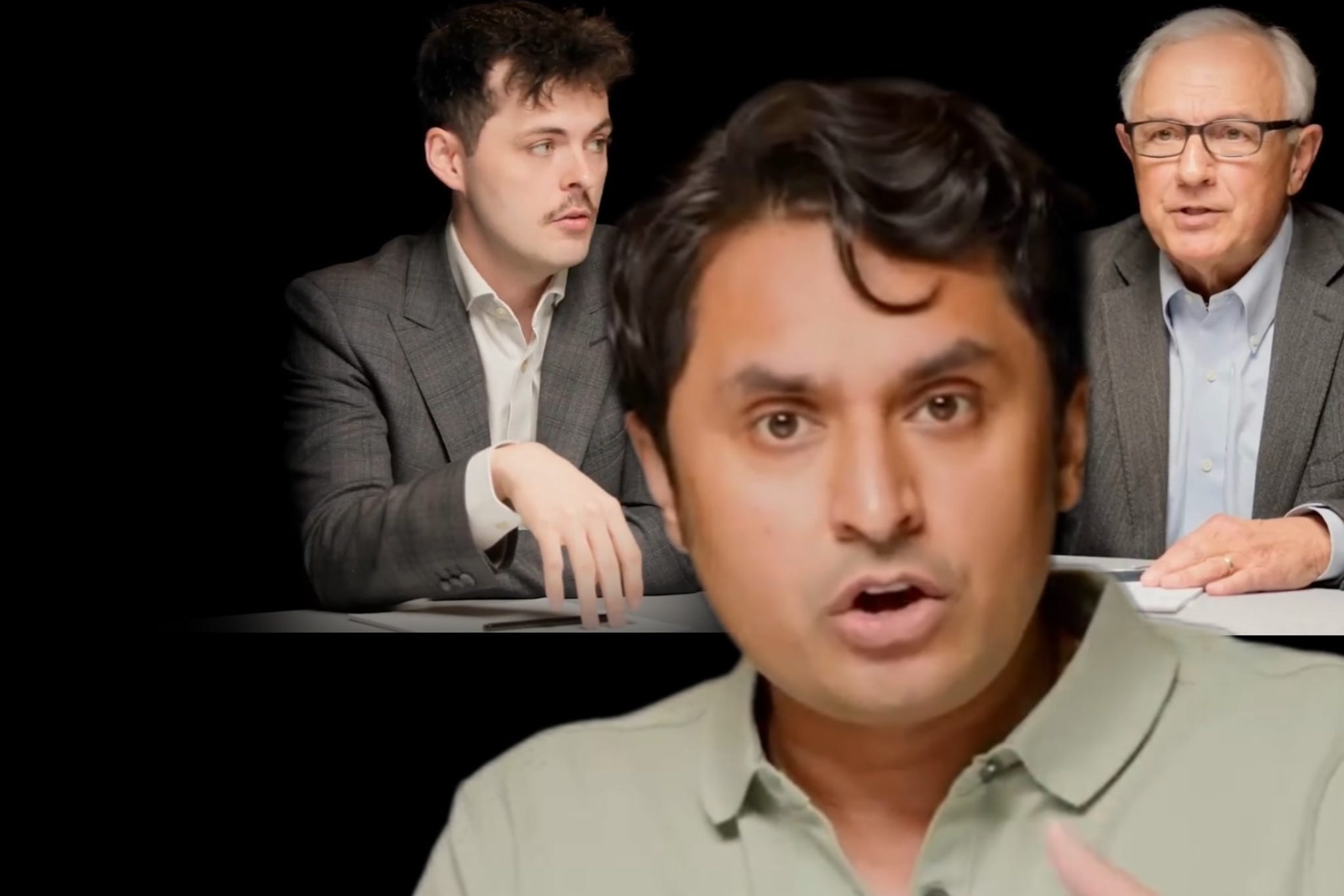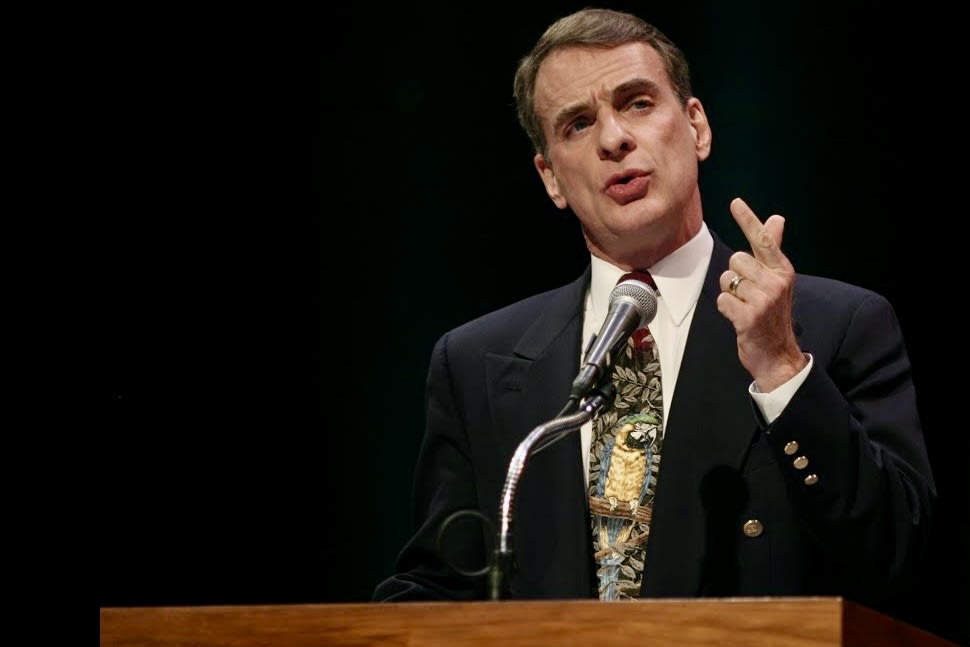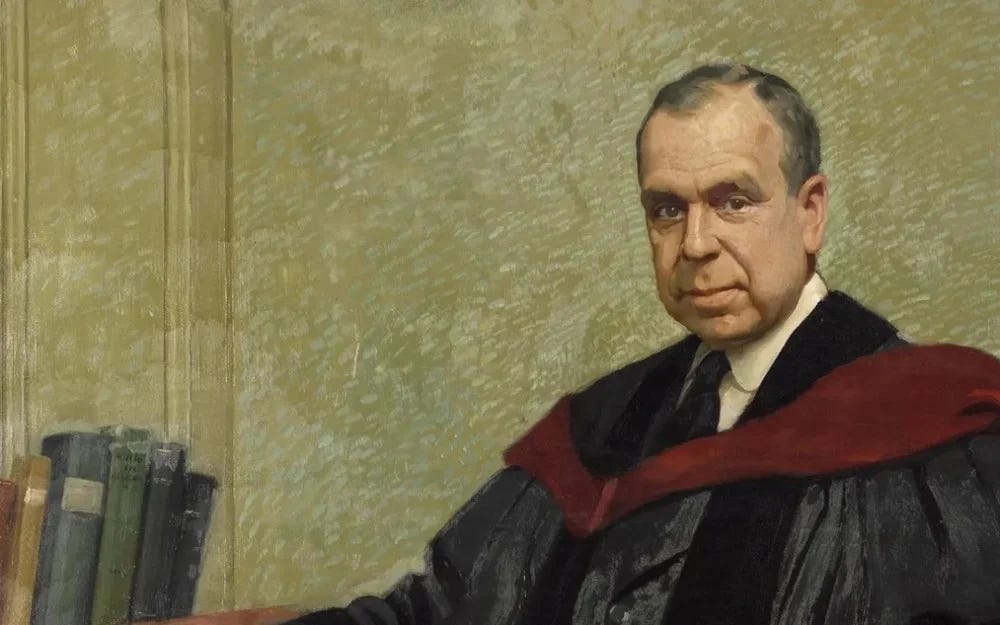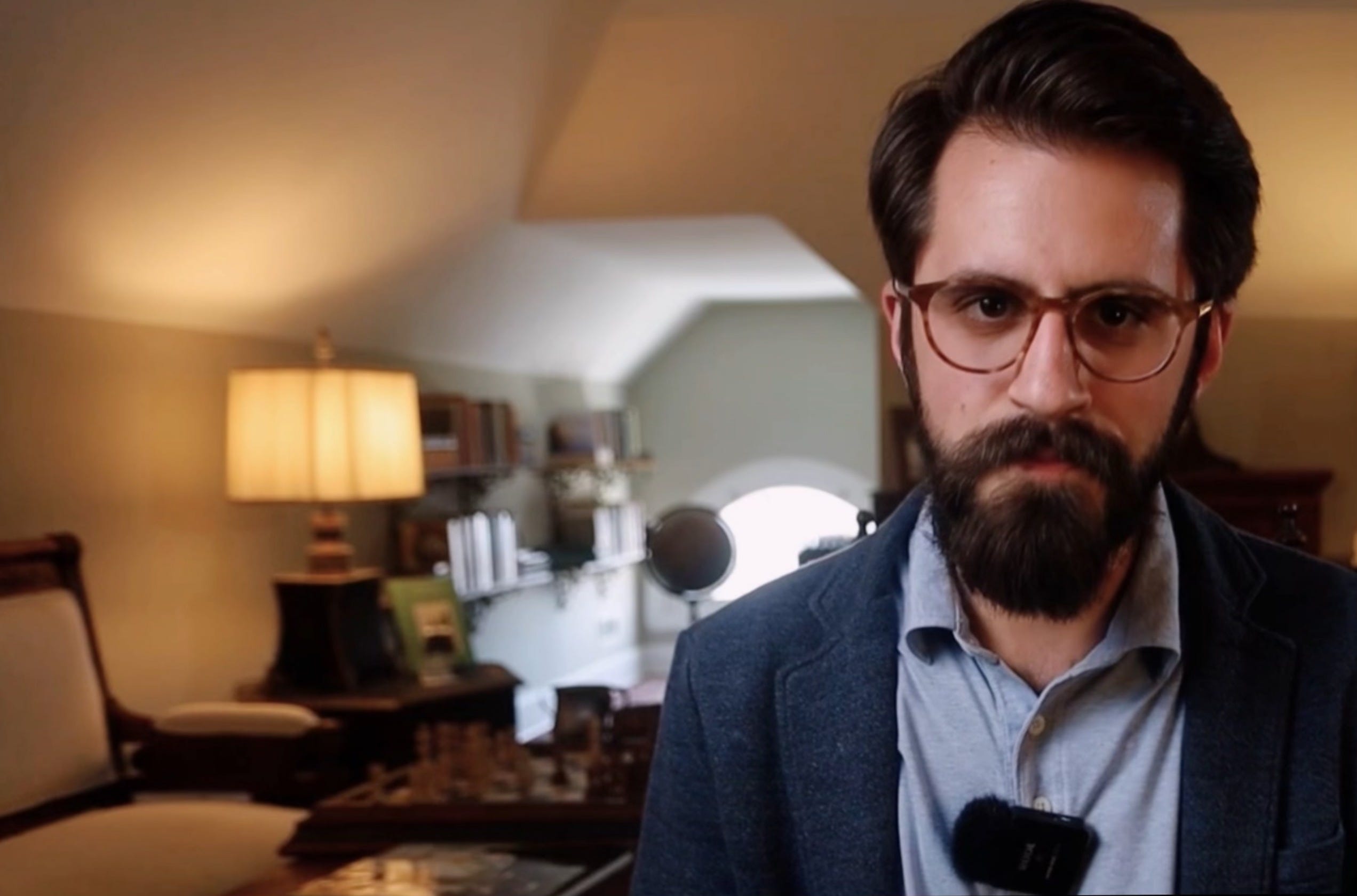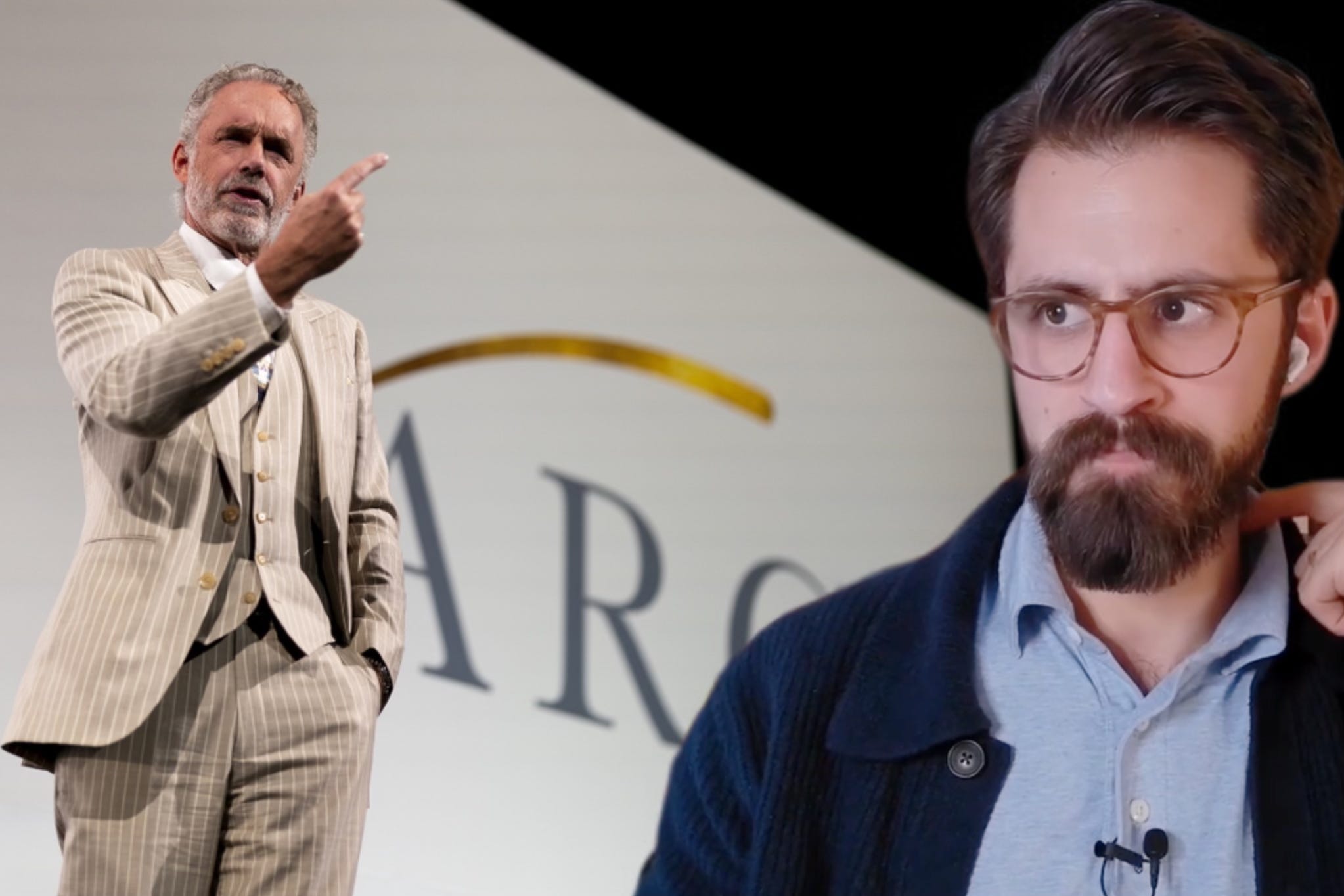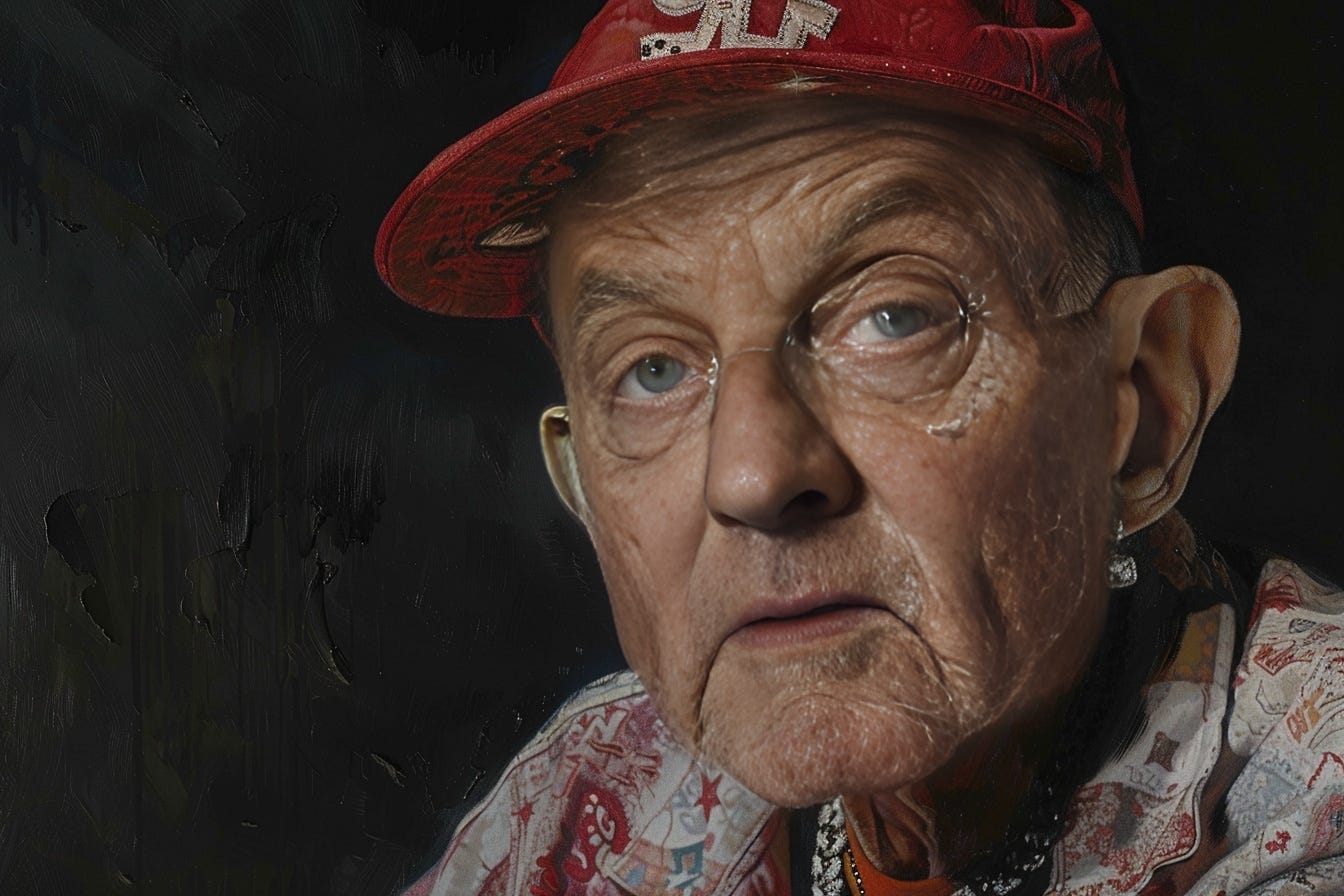Before You Discover the Meaning OF Life, Try Finding Meaning IN Life
Description
§ Recently, one of the world’s most downloaded podcasts hosted a debate between a Christian, an atheist, and a psychologist.
Their topic?
The meaning of life.
Christian apologist Greg Koukl argued that, without belief in God, a materialist worldview holds no hope to provide meaning.
The atheist—young and dapper Alex O’Connor—countered that, even if there is a God, who’s to say he hasn’t given our lives a meaning that we find meaningless? Say, designing us so that our purpose in life was to produce paperclips?
However, at other points the Christian and the atheist seemed to be in complete agreement:
Koukl: “There either is meaning objectively, or not.”
O’Connor: “I think so too, to be clear.”
Meanwhile, a third participant, “Dr. K,” trained psychologist with a background in Eastern spirituality, had this to say:
Countering both sides of the metaphysical debate, Dr. K continued, “For me, finding meaning and purpose…is a very practical thing.”
Rather than answering the perennial questions of metaphysics and religion, Dr. K is concerned to intervene in a recent, acute crisis of loss of subjective meaning—the very crisis with which Steven Bartlett, host of The Diary, framed the discussion.
As Dr. K puts it, “If someone asks me, ‘What is the meaning of life?’ I don’t know. But if someone says, ‘I have no meaning. Can you help me with that?’ the answer is, ‘Absolutely, yes.’”
And in saying this, Dr. K exposed the deep failure of several decades of both Christian and atheist apologetics, a failure that comes down, in this case, to a single preposition.
The Natural Theologian is a reader-supported publication. To receive new posts and support my work, consider becoming a free or paid subscriber.
1. The Setup
§ The Diary of a CEO is one of today’s top podcasts. Host Steven Bartlett is a young, successful entrepreneur who interviews the best minds in a wide variety of areas, from psychology, to politics, to—more rarely—religion.
That is why it was exciting to see him host this discussion on meaning and religion with a Christian apologist among the participants.
Even secular audiences have become interested in religious questions as a result of what many term “the meaning crisis,” a combination of psychological down-turns that have prompted a resurgence of religious belief and participation.
And that is the setup with which Bartlett frames the podcast discussion:
The reason I wanted to speak to all three of you today is to discuss meaning and purpose. And there’s some stats that I wanted to share that kind of frame the discussion:
Three in five young Americans believe that their life lacks purpose. Nine in ten young people in the UK believe that their life is lacking purpose.
And to give some further stats, which I found really interesting around the rise of religiosity in the UK, a belief in God amongst 18-24 year-olds has risen from 18% in 2021, to 37% in 2025. According to YouGov and in the UK, monthly church attendance has risen from 4% up to 15% in 2025.
There is something going on, and that’s what I want to talk about today.
Bartlett identifies two trends.
First, there is an increase in the number of people in Western countries who report lacking purpose in their lives.
Second, in only the last couple years, there has been an increase both in religious belief and attendance.
What is interesting about this is that, for a long time, there have been intellectuals—from Friedrich Nietzsche to Francis Schaeffer—arguing that the decline of religious belief is the cause of contemporary purposelessness. This argument has ramped up in intellectual spaces in the last nine years, chiefly through the influence of Jordan Peterson.
However, until the last two years, there was little evidence that this had had an impact on the religious beliefs and practices of the population at large. This recent turn of events lends empirical, sociological credence to what was previously only a philosophical postulate.
But the connection between religious belief and felt purpose remains opaque. Does one need to resolve questions of religion in order to gain a sense of purpose in life? Or is religious conviction merely a psychological remedy that happens, sometimes, to be effective?
2. Team Metaphysics, Unite!
§ Over the course of the discussion, it is revealed that the Christian apologist and the atheist are strongly aligned in their answer to that question.
For both Greg Koukl and Alex O’Connor,
the questions of metaphysics are prior to those of psychology.
So Greg Koukl:
“I have no reason to believe that any naturalistic explanation can explain the consciousness’s hunger for meaning and significance.”
In other words, you need to decide between metaphysical naturalism and theism before you can satisfy the hunger for meaning and significance.
And Alex O’Connor:
“You asked, ‘Do I know my own purpose?’ That assumes that there is a purpose to know.”
On the other hand, they both throw bones to psychology, acknowledging its significance in measure.
Koukl rightly points out that, because God made the world with objective purpose:
“People can participate in that meaning and purpose even if they don’t know God.”
Effectively, Koukl acknowledges the doctrine of the natural law in a way I applaud.
For O’Connor, the New Atheists neglected the psychological dimension, and he acknowledges that religion serves an important role in strengthening us against the existential threat of death:
“The New Atheist movement was quite philosophically shallow. It didn’t seriously engage with the existential component of religious belief and why it exists in the first place.”
However, in spite of these concessions, when pushed, both Koukl and O’Connor express their view of meaning as 1) turning on questions of metaphysics, and 2) being all or nothing.
At one point, Greg Koukl bluntly says, “There either is meaning or there isn’t,” to which O’Connor responds, “I completely agree.”
In short, the atheist and the Christian have teamed up on team metaphysics.
Their program is this:
“Want meaning in life? First determine the meaning of life.”
But the psychologist is having none of it.
3. Psychologist: “I hard disagree.”
§ Several years ago, Christian philosopher and apologist William Lane Craig, who has long been YouTube-famous for rattling sabres with atheists in heated philosophical debates, was caught off-guard by the introduction of a third participant: Psychologist Jordan Peterson.
In debate with Peterson and atheist Rebecca Goldstein, Craig’s directly metaphysical approach to defending Christianity seemed preachy, dated, and out-of-touch.
Something similar occurs in this discussion.
While Koukl and O’Connor are clearly poised to engage in some classic atheist-theist exchanges, Dr. K presses a different question:
“If someone asks me, ‘What is the meaning of life?’ I don’t know.
But if someone says, ‘I have no meaning. Can you help me with that?’ the answer is, ‘Absolutely, yes.’”
At one point, Dr. K brings the discussion back to the statistics with which Bartlett framed the podcast:
Steven started this out with some really scary statistics that we’re seeing, right? There’s a mental health crisis. I think a lot of what we’re seeing is, while it may be perennial, I think it’s like seems more acute right now.
Dr. K also challenges Alex on an important point. Alex argues that the discussion they are having is a perennial one. People for all history have had existential questions, questions of meaning and metaphysics, and so these are the perennial questions which will not be answered in one conversation.
But Dr. K points out that their discussion is not framed by a perennial problem, but an acute one.
That acute problem is not the perennial problem of metaphysics: What is the meaning of life?
Instead, it is the personal problem: How can I find meaning in life?
The difference is but a preposition.
Because he thinks the problem of meaning is perennial, Alex emphasizes more than once that it will be impossible, in the course of one conversation, to settle the matter.
But Dr. K disagrees. He does think their conversation can provide an answer.
4. Incremental Improvement
§ Moments later, Dr. K reveals why he thinks the meaning crisis is manageable.
While, for the atheist and the theist, the problem of meaning is all-or-nothing, for Dr. K, meaning is measurable along a sliding scale. He describes how psychologists measure a sense of meaning or purpose in life. They give people a series of surveys that get responses to questions related to meaning, control, and purpose (all of which clump together psychometrically, suggesting that they measure the same psychological variable).
He surveys the debate participants on the spot, asking how they would rate their subjective sense of purpose on a scale of 1 to 10: Koukl offers 10, Bartlett 5, and Dr. K presses Alex to admit that he would score greater than five on such a scale.
But what is Dr. K’s goal in the conversation? Not to get people from zero to ten in a single conversation, but to help people move “some vague percentage points, I’m shooting for about 20%.”
Yes.</st

